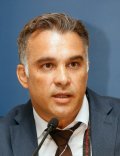Author Interviews, Pediatrics, Sleep Disorders / 22.05.2016
Inadequate Sleep Begins in Young Children and Worsens With Adolescence
MedicalResearch.com Interview with:
Summer Sherburne Hawkins, PhD, MS
Assistant Professor
Boston College School of Social Work
Chestnut Hill, MA 02467
MedicalResearch.com: What is the background for this study? What are the main findings?
Response: Sleep is so important for all of us—especially for children and adolescents as their brains and bodies continue to develop. Inadequate sleep is associated with a number of health problems including obesity, cognitive functioning, and chronic illnesses. Increasing the amount and quality of sleep are public health priorities in the US. Currently, school-aged children are recommended to get at least 10 hours and adolescents to get 9-10 hours of sleep daily. However, less than one third of students report getting 8 or more hours of sleep during the school week and total sleep time decreases from infancy through adulthood.
The new Healthy People 2020 ‘Sleep Health’ target only monitors adolescent sleep and there are no national data for younger children. Thus, there is little known about the age that sleep issues may begin and whether the prevalence of sleep issues is changing over time. Furthermore, only a few studies have examined the social determinants of sleep in children and adolescents, particularly whether there are differences across racial/ethnic and educational groups.
An overarching gap in the literature remains—monitoring sleep and identifying disparities across the life course. Using a nationally-representative sample of US children and adolescents, we examined trends and social determinants of inadequate sleep in 6-17-year-olds.
(more…)




